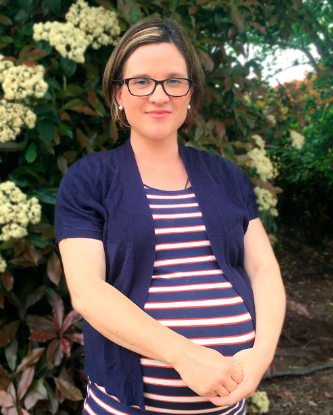We have a page published in the Together Paper at the start of each month. You can always read this article via the Wagga Wagga Diocese website, or catch up on it below:
The reality of Jesus’ resurrection is first revealed to a – humanly speaking – surprising choice. Mary
Magdalen, yes the same Mary who earlier in the Gospel account was exorcised of not one but seven
demons, she is the one to whom Our Lord reveals Himself on that fateful morning. There, in the
grounds surrounding the empty tomb, the lamenting woman hears the familiar voice of her beloved
Rabbi speaking her name.
Why Mary Magdalen, of all people? Wouldn’t it have been more appropriate for say, Peter the
anointed first pope, to be the one to whom Jesus revealed Himself? I mean, it’s not like they
believed Mary’s account initially. Peter and John raced to the tomb to see for themselves – and yet
we give the apostle Thomas the moniker of ‘doubting’.
Yet, here is Mary Magdalen, the apostle to the apostles – in other words, the messenger to the
messengers – who first greets Jesus Christ in His resurrected body. This woman who, in her own
littleness, saw that He was EVERYTHING.
And perhaps, it is precisely this humility, this ability to recognise her own littleness, her utter
dependence on Jesus that this favour was bestowed upon her.
The mirror of humility
Humility is most often defined as the quality of having a modest or low view of one’s importance. It
is looking at ourselves honestly, as though in a mirror, but choosing to see what is true as opposed
to what we want to see.
Humility is not passive. It is not a false modesty that encourages apathy. It is not an attitude of
discouragement because we couldn’t ever achieve the things others do, or a criticism that we could
do anything others could do if we had the opportunity or better circumstances.
Humility is, in my humble opinion (yes that is a pun and I’m not sorry) best described as “seeing
ourselves as God sees us.”
How does God see us? He sees us with much more clarity than we see ourselves. He is infinitely
aware of our sins, our temperamental defects, our personality quirks and our more endearing
qualities. He is a loving and patient Father, but His love does not cover up or deny those parts of us
that we might wish to hide.
Saint Mother Teresa expressed this sentiment beautifully: “Self-knowledge puts us on our knees and
it is very necessary for love. For knowledge of God produces love and knowledge of self produces
humility.”
Or, as Saint Vincent de Paul explains, “Humility is nothing but truth, and pride nothing but lying.”
In other words, the more we know ourselves the more we recognise our littleness in comparison to
the God who made us.
Perhaps, unlike Mary Magdalen, we don’t have seven demons housed in our body. But we certainly
have areas of false modesty, and simple diabolical pride, that we need to root out if we want to
reach our potential, and unleash our capacity on the world around us.

Written by Emily Shaw
VM Writer and Graphic Designer. Wife of one, mother of 8. Tackling growth in virtue one (baby) step at a time.
